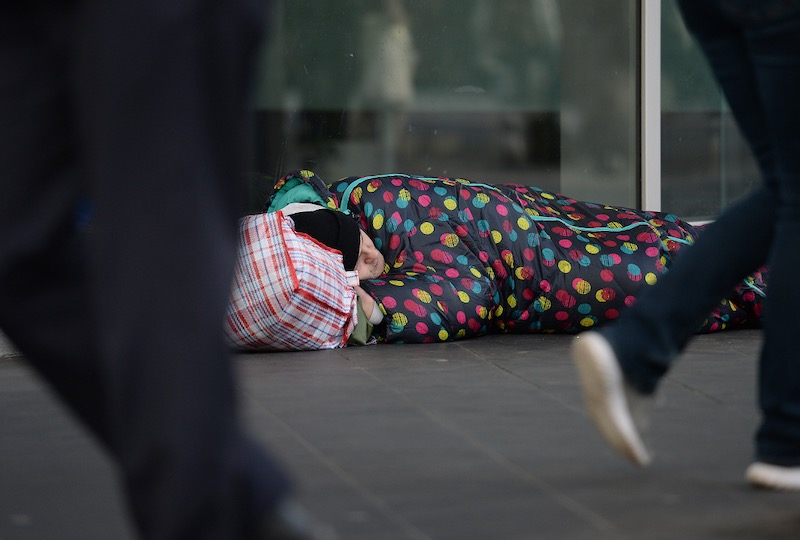Daring to peer through the current fog of uncertainty to imagine a “new normal” after the current coronavirus subsides was the theme of a recent webinar in Salford Diocese.
Reimagining Caritas – Love in action – in a post coronavirus society examined key themes related to Catholic social action, assisted by a panel including Bishop John Arnold of Salford and Mark Wiggin, director of Caritas Salford. Around 150 joined in on 29 April.
Mark Wiggin felt the coronavirus “has highlighted the significant inequalities and vulnerabilities within our society” and “the social agencies of the Church will also need to evolve to respond to potentially growing needs”. He felt lockdown has galvanised the community to help the vulnerable survive and has given the opportunity for reflection. Bishop Arnold called for a “new normal” as we all need to respond to the big social issues of our time, among them homelessness, modern slavery and the environment - care of our common home.
Mike Kane, the Catholic Labour MP for Wythenshawe and Sale East, believes that Caritas has an important role in organising and mobilising the domestic Church. He felt faith compels us to “build back better”.
He spoke about internet poverty in his own parish reinforcing social isolation and lack of access to public services or to internet Masses.
Yet, the context of poverty Covid-19 has almost overnight tackled homelessness through the government and local authorities using hotels and other accommodation to protect vulnerable people and take homeless people off the streets. This has highlighted what government can do when it wants and needs to.
“We now need to tackle Universal Credit and especially address the problem of the child benefit cap” he said. He also felt too many of his constituents are burdened by debt and relying on payday loans. He suggested that Caritas must respond to change in four ways: “finding new members, developing new training that will be required in the light of the new circumstances, getting new leaders – yes, women, young, leaders of colour – and finally finding new sources of money, which will be an impossible task but has to be done”.
Sir Peter Fahy, a retired senior police officer and an active trustee of the Diocese of Salford, Fr Hudson’s Care and Caritas Salford, spoke in favour of local communities taking action themselves. Reflecting on the grassroots example of the early Christians, he encouraged consideration of the need for an “asset-based community development” approach. He reported witnessing communities galvanised since this lockdown as an example of how local people are best placed to know what their community needs.
“The Church has a lot to learn about utilising the talents of young people” said Sr Judith Russi, a sister of Saint Mary of Namur and the director of Catholic educational charity EducareM. She suggested, “the structure must change so that young people and young adults, who find it difficult to find a place at the table, can be part of the decision-making process”. She added that, “we just want you to come to Mass and don’t rock the boat, but let them rock the boat to show what they can do”. She felt that now is the time to harness good will and generosity and recognise sacrifices that many are making, saying, “I hope that we don’t move out of this time, which we will soon, and just plod on”.



 Loading ...
Loading ...